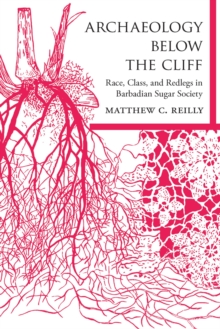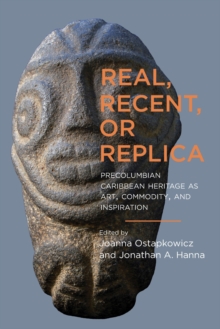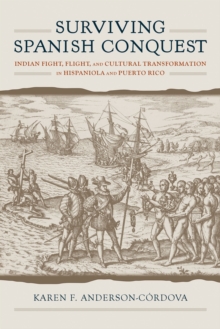
Historical Archaeologies of the Caribbean : Contextualizing Sites through Colonialism, Capitalism, and Globalism Hardback
Edited by Todd M. Ahlman, Gerald F. Schroedl
Part of the Caribbean Archaeology and Ethnohistory series
Hardback
Description
A new perspective on Caribbean historical archaeology that goes beyond the colonial plantation. Historical Archaeologies of the Caribbean: Contextualizing Sites through Colonialism, Capitalism, and Globalism addresses issues in Caribbean history and historical archaeology such as freedom, frontiers, urbanism, postemancipation life, trade, plantation life, and new heritage.
This collection moves beyond plantation archaeology by expanding the knowledge of the diverse Caribbean experiences from the late seventeenth through the mid-nineteenth centuries. The essays in this volume are grounded in strong research programs and data analysis that incorporate humanistic narratives in their discussions of Amerindian, freedmen, plantation, institutional, military, and urban sites.
Sites include a sample of the many different types found across the Caribbean from a variety of colonial contexts that are seldom reported in archaeological research, yet constitute components essential to understanding the full range and depth of Caribbean history. Contributors examine urban contexts in Nevis and St.
John and explore the economic connections between Europeans and enslaved Africans in urban and plantation settings in St.
Eustatius. The volume contains a pioneering study of frontier exchange with Amerindians in Dominica and a synthesis of ceramic exchange networks among enslaved Africans in the Leeward Islands.
Chapters on military forts in Nevis and St. Kitts call attention to this often-neglected aspect of the Caribbean colonial landscape.
Contributors also directly address culture heritage issues relating to community participation and interpretation.
On St. Kitts, the legacy of forced confinement of lepers ties into debates of current public health policy.
Plantation site studies from Antigua and Martinique are especially relevant because they detail comparisons of French and British patterns of African enslavement and provide insights into how each addressed the social and economic changes that occurred with emancipation.
Information
-
Available to Order - This title is available to order, with delivery expected within 2 weeks
- Format:Hardback
- Pages:288 pages, 30 black & white figures, 9 maps, 15 tables
- Publisher:The University of Alabama Press
- Publication Date:30/11/2019
- Category:
- ISBN:9780817320324
Information
-
Available to Order - This title is available to order, with delivery expected within 2 weeks
- Format:Hardback
- Pages:288 pages, 30 black & white figures, 9 maps, 15 tables
- Publisher:The University of Alabama Press
- Publication Date:30/11/2019
- Category:
- ISBN:9780817320324










